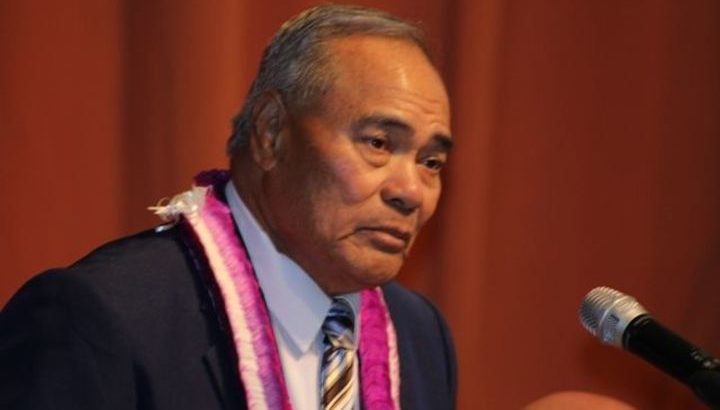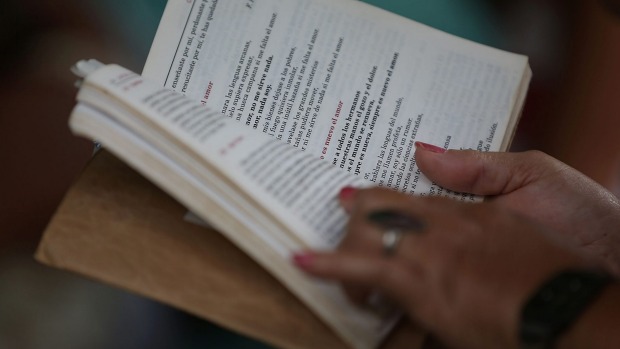Nueva Zelanda/Diciembre de 2016/Fuente: Stuff
RESUMEN: Una creciente brecha salarial en el sector de los servicios de guardería infantil ha dado lugar a un número cada vez mayor de maestros que abandonan los centros de la primera infancia en lugar de los jardines de infancia. La cuestión sobre el sistema de salarios a dos niveles se está gestando desde 2011. Esta vez el año pasado, los centros de la primera infancia estaban luchando para permanecer abiertos y algunos están insinuando ahora en la acción legal, según un experto de la educación. Peter Reynolds, director ejecutivo del Consejo de la Niñez Temprana, dijo que está harto de la disparidad salarial, diciendo que los jardines de infantes han recibido tres aumentos de sueldo en los últimos cinco años, mientras que los centros no tienen ninguno, aunque ambos están haciendo el mismo trabajo.
A growing pay gap in the childcare sector has seen an increasing number of teachers abandon early childhood centres in preference for kindergartens.
The issue over the two-tier wage system has been brewing since 2011.
This time last year, early childhood centres were struggling to stay open and some are now hinting at legal action, according to an education expert.
Early Childhood Council chief executive Peter Reynolds said he’s fed up with the pay disparity, saying kindergartens have received three pay increases over the past five years while centres have had none – although both «are doing the same job».
All we can do is make life awkward for [the government] by making it very public,» he said, «[particularly] when stupid decisions are made to raise pay rates for one part of the sector and not for another.
«The Government is creating a commercially unfair environment. Other centres are getting ready to make a stand on this – it may involve legal action.»
Reynolds said the council, which has a membership of more than 1100 centres, raised the issue with Minister of Education Hekia Parata and the Ministry of Education, but have been given no reason for the pay disparity.
«I’m hearing increasing stories of teachers working for childcare centres who are leaving their centre jobs when the opportunity presents itself to pick up a job in a kindergarten because they’re paid more for the same work,» Reynolds said.
Kindergarten associations employ their teachers under a single collective agreement. That collective agreement is negotiated between their union, NZEI Te Riu Roa, and the ministry.
The salary scale for kindergarten teachers ranges from about $35,300 to $73,000.
The education and care equivalent is about $33,600 to $68,400.
However, NZEI national executive Virginia Oakly said any increase in funding to the private sector won’t automatically be passed on to teachers through increased salaries.
«It’s bulk-funded and private operators can use the money as they wish – including as increased dividends to shareholders,» Oakly said.
«If the private sector wants parity of funding, that should mean parity of pay and conditions for teachers, not a bonus for owners and shareholders.»
Oakly said in her experience of hiring teachers, most are «desperate to get out of private centres and into kindergartens».
«They see that kindergartens have superior pay and conditions, and unlike most private centres, kindergartens employ 100 per cent qualified teachers while other centres can legally employ up to 50 percent untrained staff to work with the children,» she said.
«They see that kindergartens value their professional skills. Of course, because of that, very few kindergarten teachers move on, so teaching positions in kindergartens do not come up very often.»
New Zealand Kindergartens chief executive Clare Wells agrees.
«[K]indergarten teachers are covered by a single national collective agreement which sets their salaries and conditions [whereas] other ECE services negotiate with their staff for pay and conditions,» Wells said.
«[Previously], there was no oFbligation for [centres] to pass on the increased rates to their teachers – unlike kindergartens. In 2011, the Government stopped the ‘pass on’ funding, which has created increased pressure on services and the maintenance of parity where that existed.»
Reynolds said the Government is responsible for setting up the environment for which childcare operates in New Zealand and «pay disparity shouldn’t be happening».
«A clause in the agreement means that teachers employed in kindergartens have to be paid on a par with their primary school colleagues. Now, we don’t mind that – that sounds eminently fine, that the government pays more money to ensure that that happens.
«What we object to is the Government not also paying the same level of funding to their teacher-led early childhood services that are not kindergartens.
«They used to do that. They did that up until 2011, then they stopped. And ostensibly, the reason for stopping was the economic global recession, they couldn’t afford to continue making the payments.
«All we’re asking for is a level playing field,» Reynolds said.
«We’ve said to the Government that if they’re going increase kindergarten pay, then to pass that increase on to teacher-led services as well. If not, then don’t give the kindergartens any more increases,» he said.
«New Zealand is full of ECE centres running at a loss, battling to maintain quality and keep parent fees down, and eating up their reserves year after year to do so.»
Fuente: http://ssl-www.stuff.co.nz/national/education/86181610/Childcare-centres-losing-teachers-to-kindergartens-over-pay











 Users Today : 47
Users Today : 47 Total Users : 35459953
Total Users : 35459953 Views Today : 53
Views Today : 53 Total views : 3418518
Total views : 3418518